Benefits of a Clean Auto Air Filter
March 26th, 2020
Did you know that changing your air filter can increase your car's fuel efficiency and prolong its engine life? The air filter's job is to deliver 10,000 gallons of clean air to the engine for every gallon of gas burned to enter the engine. Though it's only one small component among the many that make your car run, the air filter plays a big role in how your car runs and how long it runs. 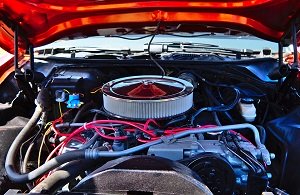

Car engines need an equal amount of fuel and clean air in order to run efficiently and smoothly. To make sure that your engine receives only the cleanest air and prevents damage from small dirt and particles, air filters for cars are installed.
The major benefits of keeping your auto air filter clean are:
Better Fuel Economy &mda ...[more]
Posted in:
Auto Repair 101
Why You Should Store Your Winter Tires
March 12th, 2020
Tire storage is an important factor in maximizing the life of your tires. While swapping out one set of tires for another is a challenge in itself, once your winter tires are removed, you still need to store them properly for the warm months ahead. 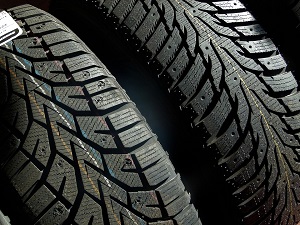

It’s important that your tires be properly stored when they’re not in use in order to make sure they’re ready to go when the temperature drops. Storing your winter tires is beneficial because:
- Improper storage can result in reduced life for your tires or end up making them unusable.
- If your tires are not stored properly heat, UV light, or direct sunlight can break down the rubber and cause them to become damaged.
- Tires become unstable an ...[more]
Tags:
tires
Posted in:
Tires 101
How to Protect Your Tires Against Common Road Debris
February 27th, 2020
Good tires are not cheap, so it is important that you do everything you can to extend the life of your tires. Because a vehicle’s tires are the first point of contact, road hazards such as small rocks, trash, debris, and salt and chemicals can be hazardous while driving. Attempting to avoid the debris is dangerous when driving because — both visually and mentally — it is hard to process the hazard level of an object in the few seconds a driver has to react. Drivers who encounter road debris, often don't have the time or space to avoid a collision, and these accidents can be quite serious.

Encountering several unfriendly obstacles on the road such as potholes, steel plates, uneven seams, branches, roadkill, gravel, glass, and more are common. Even if this debris does not puncture y ...[more]
Tags:
tires
Posted in:
Tires 101
What to Do After a Car Accident
February 13th, 2020
Staying safe on the road is every driver’s priority. This is why we get our cars repaired the moment we think that a problem exists. It's for the safety of everyone that there are so many laws in place that drivers need to follow. We all love the ability to drive to get where we want to. But we also need to take care of ourselves and other people on the road.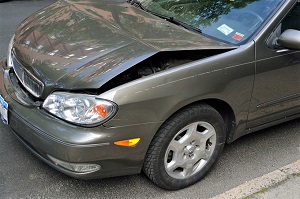

While you may be the most careful driver out there, mistakes happen, and bad drivers can happen too. Automotive accidents are extremely unexpected and can happen to anyone, no matter how careful they are. Car crashes are violent and scary, and if you’re ever in one, you might not know what exactly to do. This is why we’ve prepared an auto accident checklist to help you get through those ...[more]
Tags:
auto repair
Posted in:
Auto Repair 101
Tire Patterns and What They Mean
January 30th, 2020
Tires are one of the most important safety and performance features of a vehicle. These specialized tools are the only part of your car which maintains direct contact with the road. This means there is a lot of planning and design put into the functionality of your tires.
Look at your tires, what do you see? A mesmerizing pattern, since performance is key. The design of the tread on your tires isn’t only for aesthetic purposes. The arrangement of cuts into the rubber is done with the purpose of increasing traction, grip and overall functionality. The last time you bought tires, you probably heard terms like “symmetrical,” “directional” and maybe you were introduced to “seasonal tires” or even “all-weather tires.” These tires each gain their classifications because of the tread design they have.
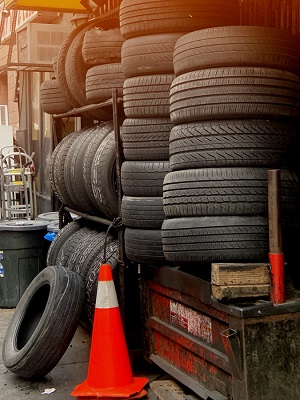
Tags:
tires
Posted in:
Tires 101
5 Common Power Steering Problems
January 16th, 2020
In order to reduce the need for effort from the driver to steer the vehicle, engines incorporate a system referred to as “power steering.” This is a hydraulic system which uses power steering fluid to build pressure which is then used to change the direction of the wheels. This means you don’t need to arm wrestle with your steering wheel when trying to take a turn.

When your car’s power steering system begins to fail — or the fluid needs to be replaced — it can make it much harder to control around curves and corners. There are a few problems which can cause this issue. Here are some common problems associated with the failure of your power steering system.
Leaking Power Steering Fluid ...[more]
Tags:
Auto Repair
Posted in:
Auto Repair 101
How is a Tire Installed?
December 26th, 2019
For the safety and performance of your vehicle, your tires should be installed by an expert technician. Proper installation enables your tires to function fully and provides maximum safety. On average, a tire installation takes about 45 minutes to an hour. After you have selected the right tires for your vehicle, your tires will be expertly installed. A proper installation includes:
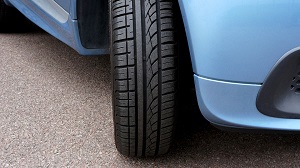
- Inspecting the lugs or wheel bolts
- Installing new rubber valve stems where applicable
- Mounting the tires
- Balancing the new tires on your wheels
- Tightening the wheel lugs to the manufacturer recommended torque
- Servicing TPMS systems
The Steps to Install a New Set ...[more]
Tags:
tires
Posted in:
Tires 101
Conventional vs. Synthetic Motor Oil
December 12th, 2019
When you go to purchased motor oil from your local auto store, do you know what you’re really paying for? When a service attendant asks you synthetic or regular, do you know the difference? If these situations leave you feeling unsure, let’s examine your options so next time you can make an informed decision. 

What Are the Advantages of Synthetic Oil Over Conventional Oil?
First off, synthetic oil is better than conventional oil. Synthetic motor oil uses a higher quality base oil as compared to the less-refined base oil used in conventional oils. Full synthetic oil provides better engine performance and protection than conventional motor oils and they are specially formulated to provide additional performance benefits. Conventional oil — when compared ...[more]
Tags:
Auto Repair
Posted in:
Auto Repair 101
Why Is Tire Pressure Important?
November 28th, 2019
Your vehicle’s tires should always be inflated to their proper PSI (pound per square inch), which is the standard rating for air pressure within a tire. The PSI for your vehicle’s tires is generally found on the drivers’ door jamb, inside your owner’s manual or on the tire itself. Proper tire inflation will allow you to have the best possible control of your vehicle and gives you a more comfortable ride. 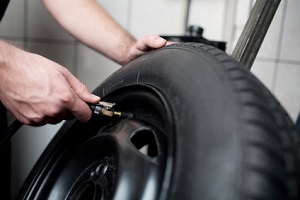

For proper tire pressure and inflation:
- The pressure of your tires must be in accordance with the PSI recommended by the tire manufacturer.
- Tire pressure should be checked in the morning before you drive your car in order to get an accurate reading.
- Temperature affects tire pressure; when it is ...[more]
Tags:
tires
Posted in:
Tires 101
Tips for Winterizing Your Vehicle
November 14th, 2019
Winter is on the way. It’s time to get your vehicle winter-ready. Winterizing your vehicle is necessary to keep your vehicle performing its best during the cold months. Your vehicle’s safety is important during winter conditions, especially if you must drive on icy or snowy roads. There are several things you can do to ensure your car operates successfully throughout the winter months as well as maximize your car’s ability to keep you and your family safe should a winter weather problem occur. 

Here are some car care tips to give you peace of mind during winter driving:
- Cold weather slows down your battery power. During the cold weather, your engine requires more current from the battery in order to start the engine. Have a mechanic check your battery ...[more]
Tags:
auto repair
Posted in:
Auto Repair 101
| << Previous | 123456789 | Next >> |
Categories
Archives
2022
October (1) September (1) August (1) July (1) June (1) May (1) April (1) March (1) February (1) January (1)
2021
December (1) November (1) October (1) September (1) August (1) July (1) June (1) May (1) April (1) March (1) February (1) January (1)
2020
December (2) November (2) October (2) September (2) August (2) July (2) June (2) May (2) April (2) March (2) February (2) January (2)
2019
December (2) November (2) October (2) September (2) August (2) July (2) June (2) May (2) April (2) March (2) February (2) January (2)
2018
December (2) November (2) October (2) September (2) August (2) July (2) June (2) May (2) April (2) March (2) February (2) January (2)
2017
December (2) November (2) October (2) September (2) August (2) July (2) June (2) May (2) April (2) March (2) February (2) January (2)
2016
December (2) November (2) October (2) September (2) August (2) July (2) June (2) May (2) April (2) March (2) February (2) January (2)
2015
December (2) November (2) October (2) September (2) August (2) July (2) June (2) May (2) March (3) February (1)
2014
November (2) October (2) September (2) August (2) July (1) June (2) May (2) April (2) March (2) February (2) January (2)
2013
Tags
tires MPG gas mileage New Warehouses preventative maintenance winter auto repair winter car service tire summer tires all season tires winter tires drivers safety auto repair auto service brakes brake service flat tires car repair oil change brake fluid transmission fluid power steering fluid tire pressure Fuel Economy air conditioning car alignment Mother's Day AC Service wheel alignment tire rotation tire repair tread depth tread wear replacing tires driving safety back to school tire rotation service tire inflation Halloween vehicle lighting headlights holiday travel oil changes car air conditioning mechanic car battery snow tires high mileage car high mileage engine tire recycling tire technology tips auto facts tire facts check engine light spark plug truck tires used car buying tips performance upgrades Serpentine Belt Timing Belt Spare Tire Tire safety Parking Brake Engine Facts Auto Maintenance Tire Maintenance Traffic Laws Buy New Tires Tire Types headlight restoration Tire Recycle Auto Repair



